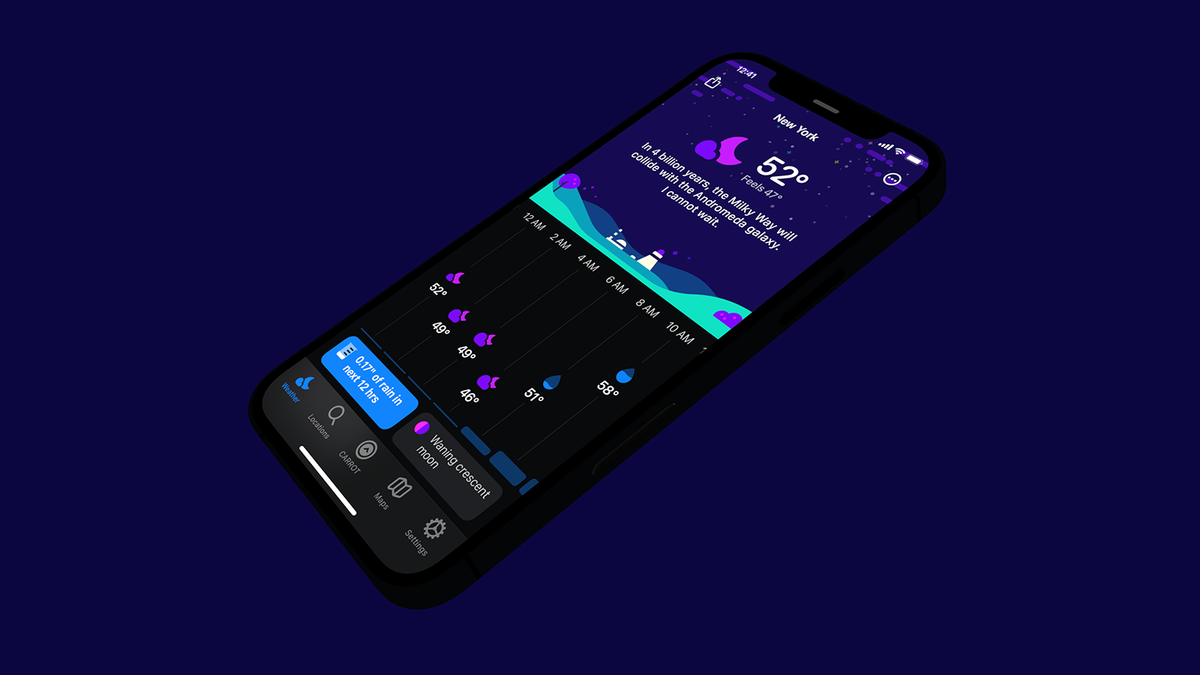These Weather Apps Really Care About Your Privacy

It is common knowledge that weather applications are easy to create but very difficult to control. Any developer can whip up an interface from a template, add a weather API (there are a lot of them) and upload it to the App Store. This “innocent” weather app can then show you ads, track your usage, and sell your data, including your location history. Even big companies like AccuWeather and Weather Channel were found to be sharing personal data of users with the highest price even when users explicitly opted out.
If you are currently using a weather app, it’s time to check your privacy. Open the app’s page in the App Store or Play Store, go to the data section and see what your data it uses. At best, there is none – for example, in the App Store, you should ideally see a “No Data Collected” banner. The next best thing to do is turn off precise location reporting , which means the app can know what city you’re in, but it can’t know your exact location.
Even after that, your weather app might be too carefree with your data to be usable. If you don’t mind deprecating your current weather app, here are some privacy options:
Use the weather website
Weather apps are useful, but you may not need all of their fancy features. Perhaps you just need a resource that tells you whether or not to bring an umbrella to work today. If yes, then the weather site is for you. You won’t get custom alerts or deep data analytics, but you’ll keep your privacy. In addition, these sites are completely free. Diving a little deeper into the world of weather apps, you’ll soon discover that privacy comes with a price—usually on your wallet.
Looking for reliable weather websites? Take Windy , Ventusky , and the National Weather Service .
Apple and Google have good default weather apps
Whether you have an iPhone or Android, your smartphone has a robust weather app built into it. Yes, the Weather app on the iPhone hasn’t been the most reliable lately, but it does the job most of the time. And weather updates from Google are not only trustworthy, they can also be found on the Google search page.
Or choose a weather app that cares about your privacy.
If you’re sure you need a third-party weather app on your home screen, here are some of the best options that won’t compromise your privacy.
Carrot weather
Carrot Weather is popular for its snarky nature and attention to design. The free version of the app will be enough for most users (it shows an hourly forecast and basic weather information). Anything more will cost you. For example, its fully customizable interface and beautiful weather widgets are behind paywalls, as well as the ability to change data provider. You can get all of this for $39.99 a year, but you won’t have to fork out your data along with your money as the app vows never to sell your information (including location data) to a third party.
hello weather
Hello Weather is a simple weather app with an even simpler privacy policy (no data collection). The free version will give you all the basic information, but you can pay $12.99 per year to unlock data sources, advanced radar features, and more frequent updates.
ventuski
If you are a visual person and love browsing real-time weather apps, this is the app for you. Ventusky gives you access to beautiful maps in real time, without the hassle of cable news.
The app does not collect personal data, and the free version has useful tools such as forecasts, air quality and UV index reports, and more. You can upgrade to a premium plan for $5.99/year to get additional features such as humidity, barometric pressure, wave forecasts, and ocean currents.
Note that the app’s website has the same live maps, so you can skip the app altogether if you want.
(Not boring) Weather
If you want a bit of style along with the privacy of your data, check out the (Not Boring) Weather app, which takes a typographic approach, giving you basic forecast and weather information in a big, colorful font. It has few features as you won’t find a live map or radar data here. This app is part of a $14.99/year paid iOS-only suite (Not Boring), which also offers other thoughtful versions of everyday apps, including a calculator, timer, and habit tracker.
[ Like a Geek ]